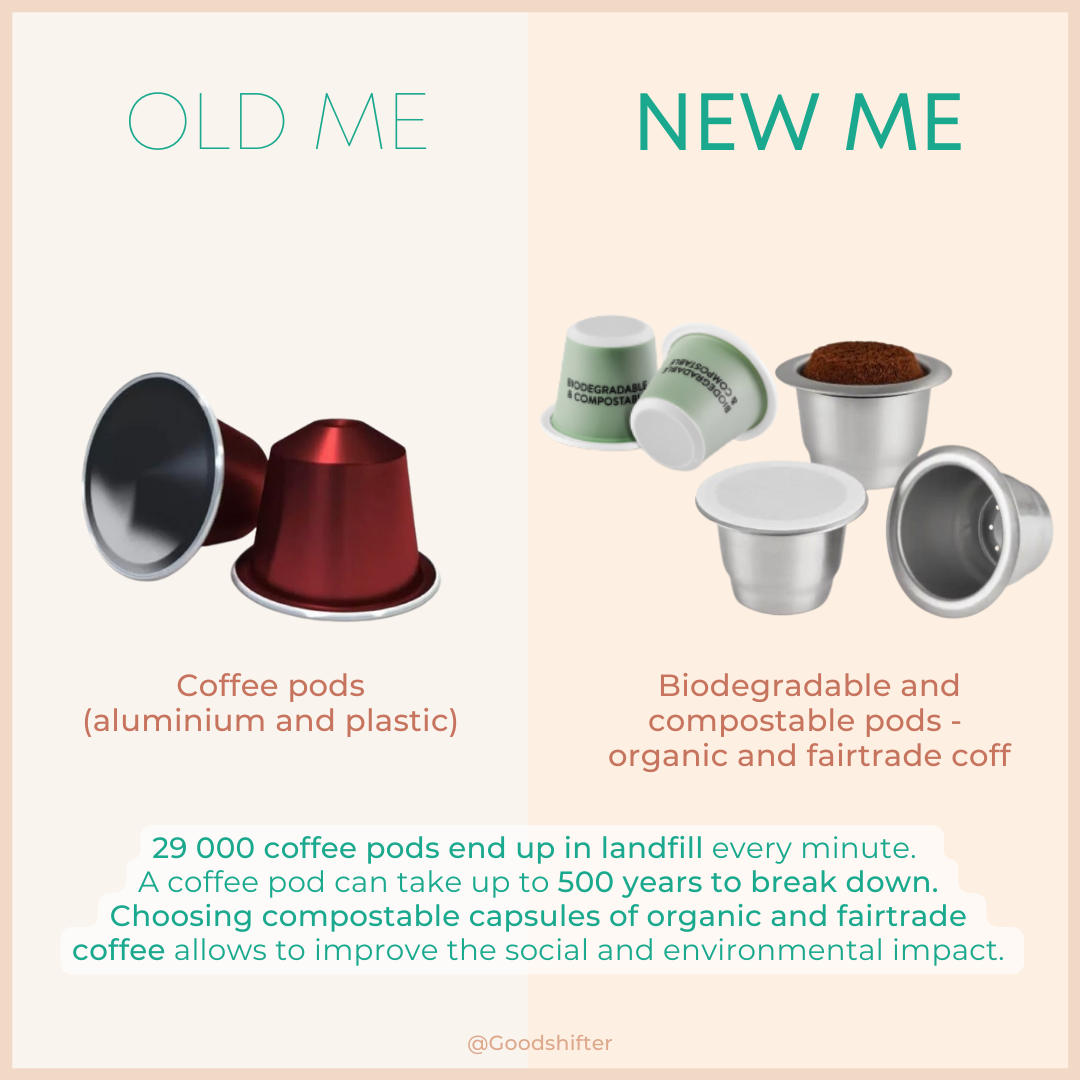
Environmental impact of coffee: the coffee pods dilemma
May 17, 202329,000 coffee pods end up in landfill every minute, so over 120,000 tonnes of waste each year and the vast majority is made of aluminium or plastic. Aluminium can be recycled, but its production and recycling are very energy-intensive. In fact, only 1 out of 5 Nespresso capsules is recycled. And the pod is one of the wastes that takes the longest to decompose: 500 years is more than a bottle of water.
For these reasons, the capsule has long been decried, but it actually has a smaller ecological footprint than filter coffee because it requires less coffee, water and energy per cup (but it produces more waste).
What you need to know to minimise the ecological footprint of your coffee…
The coffee with the most limited carbon footprint is instant coffee, according to a study by the University of Quebec.
But for those who want to continue enjoying their Nespresso type coffee machine, the biodegradable and compostable capsule could be a good alternative, preferably with organic and fairtrade coffee.
It is important to choose capsules that have certain certifications such as the European standard Tüv Austria (OK Home compost): These pods are meant to be disposed of in your home compost or organic waste bin. In the first case, they are supposed to decompose in 6 months at room temperature but some recent studies have questioned the effectiveness of home compost. Therefore the safest waste management option would be via the organic waste bin because they can be valued and eventually transformed into a substrate to fertilise plants.
If you use aluminium coffee capsules, be sure to recycle them properly, preferably using specialised collection points such as those offered by Nespresso.
The importance of moderating your coffee consumption
The ease and speed of use of pod machines can lead the consumer to over-consume coffee and therefore increase the associated greenhouse gas emissions.
In addition, coffee production could decrease in the coming years and resources could run out if consumption continues to increase. Indeed, experts warn that “Climate change could indeed reduce the global area of land suitable for coffee production by around 50% by 2050, in a context where the demand will triple”*.
In summary, while compostable alternatives are progress, coffee is still a product with a high ecological cost. Expert Diego Michiels of the non-profit association Worms, concludes in an article on RTBF.be: “Coffee has become a very commonplace product today. But it is more of a luxury product, which needs a lot of manpower, resources and logistics”. It is therefore important to consume it responsibly and moderately.
Our selection :
Kissthehippo coffee
Pennington coffee
Moving beans coffee
Sources :
*Geo
The Independent
RTBF
Olive Magasine
Grind